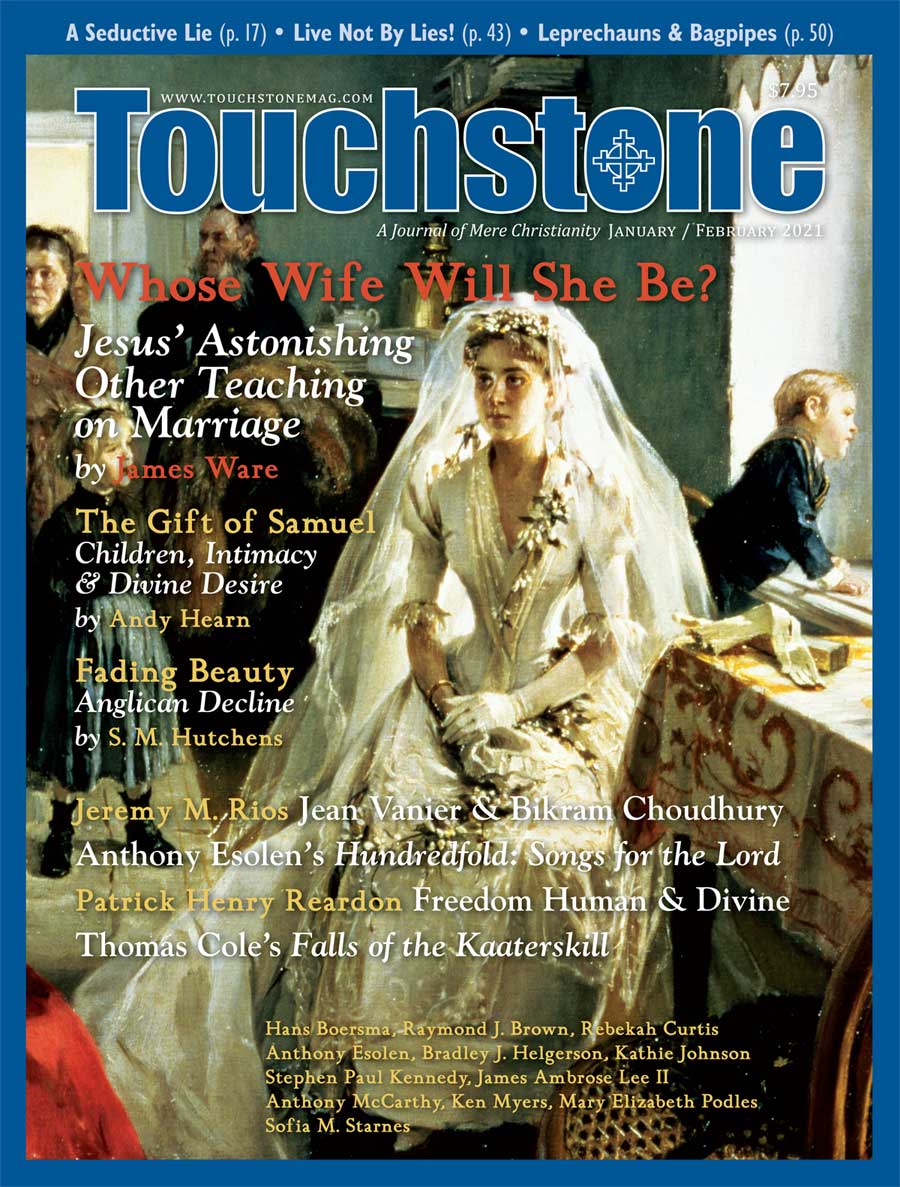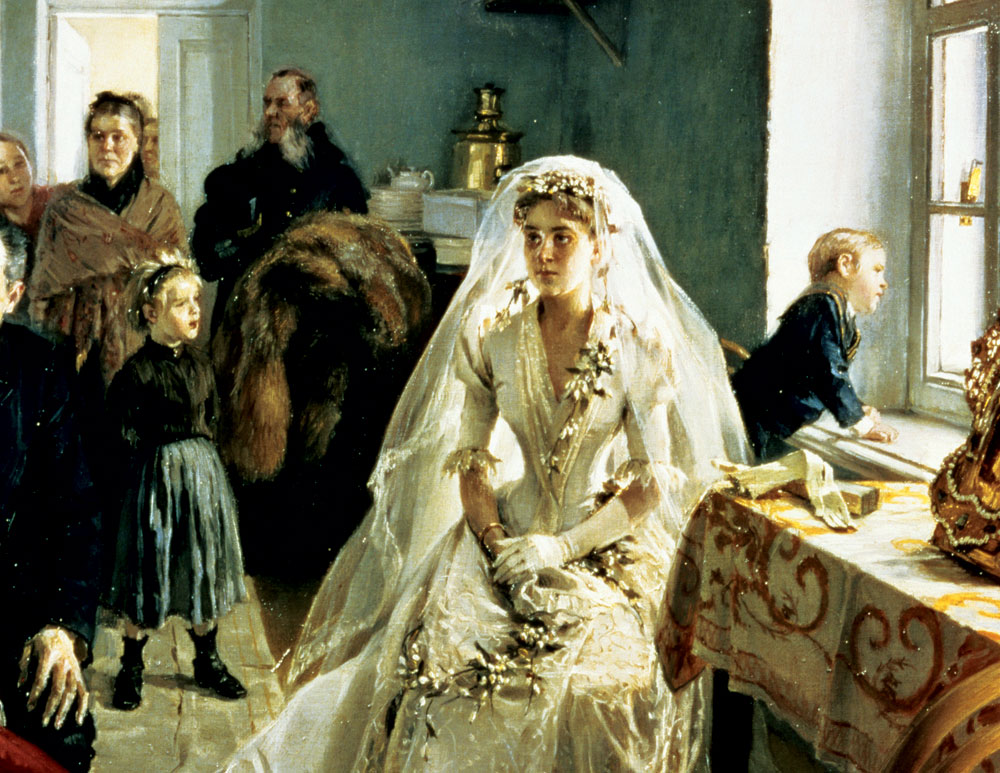The Gift of Samuel
Children, Marital Intimacy & Divine Desire
Hedonists everywhere should be concerned; after all, lust is what it has always been. Even when it is attended by pleasure, lust remains ungratified and ungratifying. This will surprise no one, but it does seem to bother some. Otherwise, there would not be such a rush to exalt lust as love, or to confuse their rewards.
Consider that, in 2017, New York State mandated that insurers provide coverage for infertility treatments to anyone, regardless of the person's marital status or sexual practices. The state already required insurers to cover infertility treatments for women who sought pregnancy naturally; the new directive extended that coverage to unmarried women and homosexuals. As the administration in New York allegedly strove to protect "reproductive choices," it is plain that it was most pleased to have created a "choice" where none existed before.
It is some homosexuals, then, who seem so confused and unhappy about the evident, persistent biology of their bodies that they now insist upon receiving the reward of perceived intimacy—i.e., children—even when nature forbids it. But lust and love are not the same, and the rewards of the one cannot be conferred upon the other, whether this is acknowledged or not. This was, of course, all settled ages ago: Scripture and the natural order speak clearly enough, but that hasn't stopped activists and bureaucrats from mounting an argument against biology, mainly because men and women continue to argue with God.
If homosexuals have any argument at all, it is essentially and inevitably one of sentiment. But whether the sentiment that some homosexuals call love is endearing and enduring is not a relevant question; rather, it is appropriate to ask whether the sentiments they profess and act upon can ever resonate in the way that intimacy between a man and a woman naturally and normally does, that is, in the conception of a child. The obvious answer to that question is no; but then again, intimacy is evidently not what it used to be, and so we find New York (with other states likely to follow) distributing rewards for fornication.
Of course, unmarried heterosexual couples also frequently employ the same argument of sentiment—and that without the biological inconveniences of the homosexual. In the Western world, marriages occur less frequently than they used to, while cohabitation and pornography use are on the rise. In other words, Americans are not sexually inactive, only deviant. American heterosexuals naturally conceive children, but they increasingly do so outside of marriage.
True Intimacy Is Continuous
This leads us to state the obvious: that the marriage vow is not necessary for the natural conception of a child. This is not to say, however, that the natural and ordinary manner of conception always brings about a happy child; in fact, it is apparent that it does not. Although increasing numbers of children are born to unmarried heterosexuals and are raised by such couples with increasing regularity, the unhappy results of this are demonstrated in numerous studies. But the manifest irony is that this too-prevalent sin among heterosexuals has resulted in a world where homosexuality is increasingly accepted as normal.
And this brings me to my ultimate concern: that there is something about the continued intimacy between a man and a woman—a husband and his wife—that is germane not merely to what it physically conceives in the moment of conception, but also to what it can subsequently bring about in the nurture of a child into an adult, a child who must then live in the world that he inherits from his biological parents.
Is there a real difference between lust and intimacy, other than the uncertain, halting perceptions of lovers? Indeed, there is, but it is not a distinction of sentiment; rather, it is a distinction of actual potency. Whatever their intensity, passions alone can never produce what it is hoped or pretended they can, for there remains the matter of biology. But we best regard intimacy by an additional measure still: by what it is able to anticipate, embrace, and finish, that is, the nurture of a child that a man and wife conceive and then raise together.
It is true that increasing numbers of unmarried people are having children, but then again, families are not what they used to be. Homosexuals may attempt to raise a child, but it is never one they conceive between themselves. And although heterosexuals may naturally conceive a child, this does not mean they will raise it properly by themselves.
Andy Hearn lives with his wife and four children in South Asia, serving there since 2002. They are members of a Baptist Church in the Boise, Idaho area.
Share this article with non-subscribers:
https://www.touchstonemag.com/archives/article.php?id=34-01-035-f&readcode=10498
subscription options
Order
Print/Online Subscription

Get six issues (one year) of Touchstone PLUS full online access including pdf downloads for only $39.95. That's only $3.34 per month!
Order
Online Only
Subscription

Get a one-year full-access subscription to the Touchstone online archives for only $19.95. That's only $1.66 per month!
bulk subscriptions
Order Touchstone subscriptions in bulk and save $10 per sub! Each subscription includes 6 issues of Touchstone plus full online access to touchstonemag.com—including archives, videos, and pdf downloads of recent issues for only $29.95 each! Great for churches or study groups.
Transactions will be processed on a secure server.
more on family from the online archives
more from the online archives
calling all readers
Please Donate
"There are magazines worth reading but few worth saving . . . Touchstone is just such a magazine."
—Alice von Hildebrand
"Here we do not concede one square millimeter of territory to falsehood, folly, contemporary sentimentality, or fashion. We speak the truth, and let God be our judge. . . . Touchstone is the one committedly Christian conservative journal."
—Anthony Esolen, Touchstone senior editor













